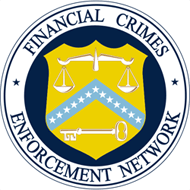
To say bitcoin is considered to be in a gray area in the realm of financial regulation isn’t a stretch. Seemingly daily, new reports are coming out that suggest the fact. Take a look at the Casascius Bitcoin mint, which was indirectly shut down by FinCEN for being “considered” a money services business.
Or take a look at what happened this week in India, when authorities raided an exchange because they thought it conflicted with preventative money-laundering legislation.
But we’re finally getting some clarity when it comes to bitcoin mining, and what miners do with the bitcoin they’ve virtually minted. That’s because the United States Dept. of the Treasury’s FinCEN (Financial Crimes Enforcement Network) has provided some clarity on this front.
The question at hand: should someone who mines bitcoins and subsequently sells them at a bitcoin exchange or spends them be considered a money services business (thereby being required to register with FinCEN and go through a number of other legal hurdles)?
The folks over at Atlantic City Bitcoin, who run a bitcoin mine in the state of New Jersey posed the question to FinCEN. The response from the department was positive. Miners are not considers money transmitters and need not register with FinCEN.
In a ruling:
To the extent that a user mines Bitcoin and uses the Bitcoin solely for the user’s own purposes and not for the benefit of another, the user is not an MSB under FinCEN’s regulations, because these activities involve neither “acceptance” nor “transmission” of the convertible virtual currency and are not the transmission of funds within the meaning of the Rule.
Contrary, contracts which involve one party mining for another party has to potential to be classified as a money services business. Bitcoin news website CoinText.com has published the entire ruling . ()











